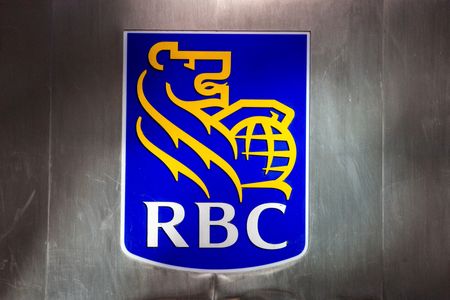By Divya Rajagopal and Saeed Azhar
TORONTO/NEW YORK (Reuters) – Royal Bank of Canada’s swift move to buy HSBC’s Canada unit for C$13.5 billion ($10 billion) strengthens its pole position at home, but faces a long road to clear regulatory challenges.
The deal is the biggest acquisition for RBC CEO Dave McKay and marks a departure from peers that have pursued overseas acquisitions to diversify their earnings
It comes just as Canada’s housing market, one of the bank’s key earnings drivers, faces a sharp downturn due to rising interest rates and analysts forecast more declines in house prices. At the same time, the economy is facing recessionary risks.
The transaction is also fraught with regulatory risks, analysts said, though RBC argues that HSBC’s Canada business accounts for just 2% of Canadian banking market share.
Still, regulators and consumers activists have long derided Canada’s concentrated banking market and the competition bureau was quick to say it will review the deal.
The finance minister has the authority to impose any terms and conditions, the finance department said in a statement.
The last time a deal of this size was attempted in Canada was in the early 1990s, when RBC wanted to acquire rival Bank of Montreal but was blocked by regulators from doing so.
Antitrust experts said RBC will have an uphill climb this time around too.
“This regulatory assessment isn’t likely to be completed for some time,” Calvin Goldman, former commissioner of Canada’s competition bureau, told Reuters, referring to the latest deal. Goldman said the competition commissioner will seek views on the proposed transaction from customers of both the banks as well as the banks’ domestic and overseas competitors.
“This deal might not be in the league of what we saw in the 90s, but still it is pretty big with systemic impact,” Goldman added.
RBC CEO Dave McKay told reporters that the bank does not expect competition concerns, when asked if it would be open to divesting assets.
“We not aware of any areas where the bureau is likely to have concerns,” McKay said.
Canada’s top six lenders control 80% of total banking assets in the country, according to Reuters calculations. By contrast, the big five banks in the United States control around 40% of the country’s assets. Consumer advocates complain that this has resulted in customers forking out more for everyday banking.
Carl De Souza, head of Canadian banking at DBRS Morningstar, said RBC might have to divest some businesses to satisfy regulators.
QUICK MOVE
Despite the expected regulatory risks, RBC was keen to move quickly. From its first communication with HSBC, RBC had said it could close a deal quickly if selected, a person close to the transaction said.
HSBC was originally looking to announce a deal by the end of the year, but RBC said it could be done by the U.S. Thanksgiving holiday, the source added.
RBC is paying 9.4 times HSBC’s 2024 adjusted earnings, which KBW analysts said was a steep price, though offset by savings potentials. That comes even as some of RBC’s rivals including BMO and TD Bank were distracted negotiating large deals in the United States to diversify risk and tap into faster-growing markets.
Some analysts also raised concerns about HSBC’s loan portfolio, where about 85% of mortgages are residential or home equity loans and some of which have variable rates. Those variable mortgages pose a risk as interest rates are expected to climb further and stay higher for longer, raising the risk of a higher number of defaults, they added.
Still, some analysts say RBC has a track record of making good acquisitions. HSBC’s exit from Canada was the first major banking asset that has come up for sale in the country since ING sold its local business to Bank of Nova Scotia in 2012.
“They’ve been patient and the acquisitions that they’ve made really don’t appear to have been made simply for growth sake,” said James Shanahan, senior analyst for North American financials at Edward Jones.
RBC is betting that the HSBC unit’s strong focus on international business clients, including those in liquidity management, trade finance, global cash management and sustainable finance could bring dividends. HSBC has also been a preferred bank for many immigrants and expatriates in Canada.
($1 = 1.3603 Canadian dollars)
(Additional reporting by David French in New York, editing by Deepa Babington)





